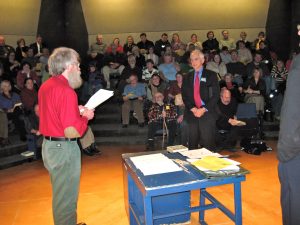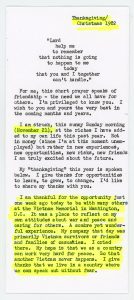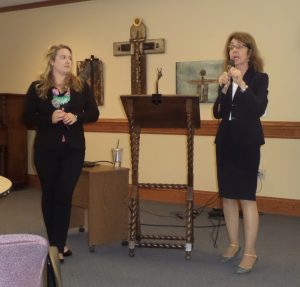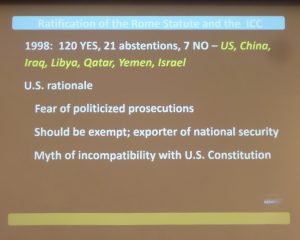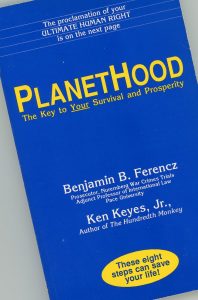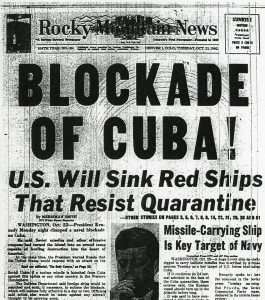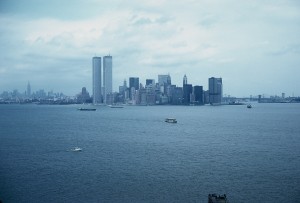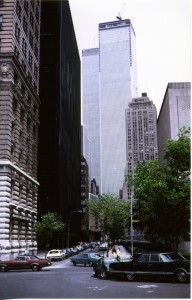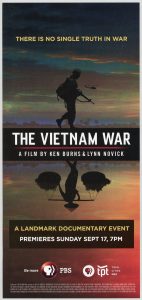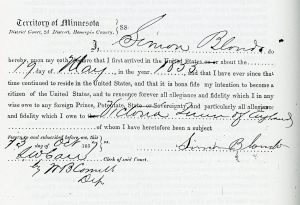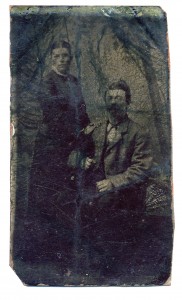Your comments are invited for a follow-up post: dick_bernardATmsnDOTcom. Please include your permission to include in a post.
Following are some thoughts about Vietnam, prior to the beginning of the 17 hour film series on PBS, Sep. 17, 2017 7 and 8:30 p.m. CDT. Here’s the schedule of programs following Sep. 17 (see pages 21 & 25): PBS Vietnam Sep 17001
(click to enlarge all photos)
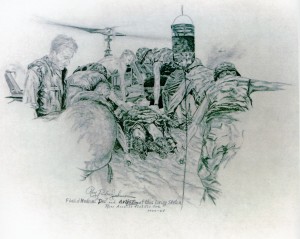
photo copy of Padre Johnson sketch from 1968, used with permission of the artist.
Re the sketch, above: I’m proud to count the artist as a friend, Padre Johnson. He was a field medic in the Mekong Delta in 1968, among other vocations in life. He sketched the incident, and describes it here: Padre J Viet Combat003.
Padre is one of many Vietnam vets, including conscientious objectors and protestors, I have come to know either in person, or through others. There are many “truths”, and perhaps the best we can do is to acknowledge differences, while working to learn from the past.
*
from Jim, Sep 10: Fifty years ago my brother was in Vietnam. During the spring and summer of 1967 he saved lives, both American and Vietnamese. He spoke fluent Vietnamese and had tremendous empathy for the people even the so called enemy soldiers. He was soft spoken, kind and generous and very much a hero. He was honored this year in Washington on June 17th. I included a short summary on the Minnesota History Center’s Vietnam Story Wall: here.
As I said in my writing, I grieve for his loss every single day.
*
from Norm, Sep 10: I am looking forward to watching the series as I am sure are many, many other veterans who served in SEA during that war let alone many others as well.
Burns has always done a great job with his previous efforts and I expect that this one will be done well also.
There was a series (TPT) on the VNW [Vietnam War] several years ago that I thought was very good as it included perspectives, experiences, reflections and remembrances from people fighting on both sides and in between, i.e. the Montagnards, the Bru, the Sioux and the Hmong, the latter working with the CIA in the “secret war” in Laos.
The feelings about the VNW were still kind of raw at that time so I was aware of many folks including several veterans that were not comfortable with the series as it included comments and perspectives from the North Vietnamese and Viet Cong, including general Giap. In addition, it showed some of the destruction caused by the B-52’s when they “went north” over Hanoi and Haiphong in the early 70’s coming from Andersen AFB(Guam), Kadena AFB (Okinawa) and Utapao (Thailand) where I had been stationed with the BUFF’s(Big Ugly Flying F…….s)in the late 60’s.
The B-52’s had been involved in the Arc Light operations for many years bombing sites in that theater before going north and encountering SAM missiles in or near North Viet Nam. The BUFFs took heavy unsustainable losses early in the effort to go North as a result of the SAM [Surface to Air Missile] missile defenses around Hanoi and Haiphong as they would initially come in on predictable routes over those two cities.
Several of the crews became residents of the Hanoi Hilton albeit for relative short times compared to Alvarez (seven years) and McCain (five years) as the truce was signed not long after the bombing of the north began and the prisoner exchange began.
Some of the crews who survived being shot down in their B-52’s were rescued by the Jolly Greens (helicopters) and the crews of medics. Several BUFF crewman did not survive either hits on the aircrafts by the SAMs, the subsequent crash and/or their injuries from received from one or the other or both.
One of the BUFFs from Utapao was hit by a SAM when over the north and limped back to its home base before crashing just outside its perimeter as it made its final approach to the runway.
I am definitely looking forward to watching this important series.
I am sure that Burns will feature the unrest within our country related to the VNW as well which is of less interest to me as that has been so well and so often documented so many times already.
I am primarily interested in learning about what other veterans were doing in that theater at the same time that I was there, it, 1967-68 as well as when my brother was there as a helicopter pilot in the early 70-‘s working with the “little people.”
I really don’t care about the impact of the war on the domestic side of the equation for various personal reasons.
*
from Larry, Sep 11: My “perspective” on War in Vietnam, with direct link to my story on the “wall”, here. And Aug 31 a radio interview at KFAI.org (here).
*

from Susan, Sep 11: My husband, Tom Lucas, served four years in Vietnam. He worked in Supply, so wasn’t in the trenches. But he flew in helicopters from time to time and experienced ammunition fire.
Tom loved the children and visited orphanages often. He knew that often children were sent into areas with bombs attached to their bodies. (You probably know all about that.)
I’m sure he knew of other atrocities but never once mentioned any.
In the 37 years we were married he rarely spoke about his time there, and I never once asked him about it. I knew it was too painful for him to discuss it. Once in a great while he would be in contact with someone who also spent time in Nam and did engage in some conversation with that person. But I was not present. Tom had two photo albums he showed.
He left them laying in the living room after their meeting, and he didn’t care if I looked at them. Shortly after our first child was born I received a call from the government asking about Tom’s possible contact with Agent Orange and whether or not our child suffered any disability. Tom was not in the jungles so wasn’t in contact with Agent Orange.
That’s about all I can remember. He did receive a couple of Commendation letters, but right now I cannot recall what they were for. I know you will sum up the whole Viet Nam experience so I’ll let you add the descriptions of that war. Tom died one day short of his 62nd birthday. He planned to retire at 62. He will be gone 9 years the end of October.
*
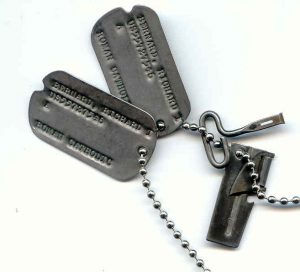
Dick Bernard, Sep 12: I am a Vietnam era Army veteran, which means I was in the service after Feb. 28, 1961. Truth be told, at the time I entered the Army, Jan. 11, 1962, I had no idea of the future significance of that time in history. A vivid memory from early in my Infantry days is of a long time Platoon Sergeant hoping to get assignment to Vietnam duty because he’d heard Saigon was good duty.
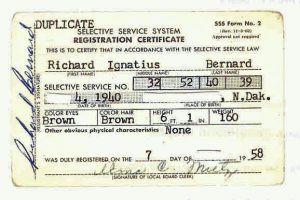
Draft Card. I must have lost the original.
I had volunteered for the Draft. At that time, we were required to register for the Draft and carry Draft cards. There was no patriotic impulse: it was something I thought I’d have to do anyway, and may as well get it out of the way. I had just graduated from college. I could have qualified for Officer Candidate School, but declined as it would have required me to extend the two year tour. I had no thoughts of conscientious objection, or alternative service. My family history has many military veterans.
My service time began at Ft. Carson, Colorado (Colorado Springs area), mid-January, 1962. My memory is that the night before we boarded a bus from Fargo ND to Ft. Carson, my roommate and I went to a movie down the street, Bridge On the River Kwai.
Ft. Carson, then, was primarily a Basic Training base for the Army. Midway through Basic Training the announcement came that an Infantry Division was being re-activated at Ft. Carson, and after we completed basic training we were virtually all transferred into this new 5th Infantry Division (Mechanized). I ended up in Company C, 1st Battalion, 61st Infantry of the 1st Brigade (if memory serves) of the 5th Infantry (Mechanized). I became Company Clerk. My recollection is that there were perhaps 140 or so of us in the Company, which shared a block with Companies A and B, and a headquarters Company.
Our routine was no different than anyone else preparing for combat.
Some years ago I contributed some pictures to a website which still exists, here.
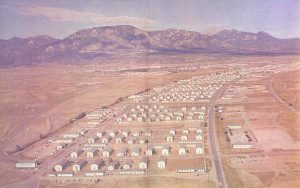
Ft. Carson CO. Best I recall, Co C was at the NE corner of the 4th full block up. This photo is from the south and dates from 1962 or so. The church we attended (all denominations) was at the very end of the base.
Succinctly, we were, at that time, a peacetime unit being prepared for war. But if there was talk about a coming war in Vietnam, I don’t recall it.
I left the Army at the end of my tour, just before the assassination of President Kennedy in 1963.
Co. C continued, and ended up in Vietnam beginning in 1968. By this time, I was back home, with a “row to hoe” – working to raise an infant. My first wife had died in 1965, and our son was 1 1/2. I saw the war develop on the news, but that was all. I had no connection to protests, for no particular reason other than home duties.
In 1967 and 1970 my two brothers entered the Air Force as officers, and the war became much more personal to me.
About the same time, Company C became heavily engaged in combat in Vietnam, though I didn’t know that till years later.
The war ended in April, 1975, thence out of sight out of mind. In mid-November, 1982, I happened to be in Washington D.C. for meetings, and while waiting for my flight out of Washington National learned that the Vietnam Memorial was being dedicated that very weekend. I went there. It was a very powerful and emotional experience. Vietnam Mem DC 1982001
It was not until last week, when I revisited the unit website, that I learned that my Company C, that small group of about 140 men for whom I had done the Morning Reports for nearly two years had, in four years between 1968 and 1971, lost 37 men in Vietnam; in all the casualties of the Battalion which had earlier shared my block at Ft. Carson totaled 145. War was, indeed, hell. I just happened to get lucky.
May my comrades rest in peace, and may we intensify our efforts for peace.
POSTNOTE: I am always conscious of people who I know are veterans, particularly so at this moment in time – that is a benefit of this 17 hour film by Ken Burns.
Yesterday I was at my barber, a retired guy who works out of his home. I’m a long time customer and we’re good friends. He’s a combat Marine vet from Vietnam – assigned as tunnel rat, at times. His brother, another Marine, was killed at 18 in Vietnam about 1968. His name is on the Wall in Washington, and here on the Minnesota Capitol grounds.
Last Thursday at the preview of the film at the PBS station, my brother, John, was with us. He was an Air Force officer, a navigator on C-141 and other transport planes, for a year or more detailed on flights into Vietnam in the early 1970s, at least once drawing heavy ground fire.
The stories go on and on. I had a chance to say my piece on film at the preview, and I said that while I didn’t think war would ever end, we certainly can do a great deal to keep it to a minimum. There are no “winners” in war, only losers. We all lose.
I stay a committed member of Veterans for Peace. I am also a long-time member of the American Legion. VFP is my personal preference. There is no perfect organization, but such groups are important.
